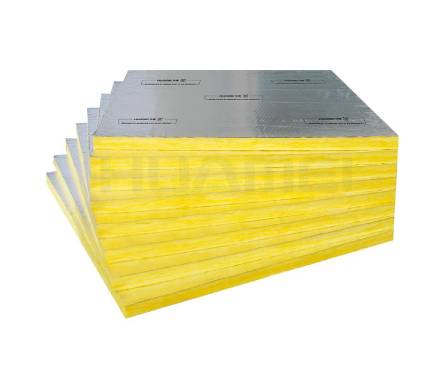E-mail: marketing@hbhuamei.com
The advantages and characteristics of Glass Wool insulation materials. Centrifugal glass wool is a filamentary material made of molten glass by centrifugal spraying process with fiberizing and spraying thermosetting resin and then subjected to thermal curing and deep processing. A series of products for various purposes. The internal fibers of the centrifugal glass wool are loose and staggered, and there are a lot of tiny spores. It is a typical porous sound-absorbing material and has good sound absorption characteristics. Centrifugal glass wool can be made into wall panels, ceilings, space sound absorbers, etc., which can absorb a lot of sound energy in the room, reduce the reverberation time, and reduce indoor noise.
Huamei Glass Wool has many advantages such as flame retardant, non-toxic, corrosion resistance, low bulk density, low thermal conductivity, strong chemical stability, low moisture absorption rate, good water repellency, etc. It is recognized by many users as superior performance insulation, Sound-absorbing materials, centrifugal glass wool is widely used. Centrifugal glass wool can also be made into new glass plates, centrifugal glass wool felt, centrifugal glass wool tubes and other materials. These materials are also widely used in construction, chemical industry, electronics, electricity, metallurgy, energy, transportation, and many other fields. The effects of sound absorption, noise reduction, and thermal insulation are very significant.

Foil-clad glass wool
Fibre Glass Wool belongs to a category of glass fiber and is an artificial inorganic fiber. Glass wool is a fiber-like material that melts glass to form cotton. The chemical composition is glass and is an inorganic fiber. Glass wool has good molding, small bulk density, low thermal conductivity, thermal insulation, good sound absorption performance, Features of corrosion resistance and stable performance.
Glass wool felt is a product made by processing a molten glass fiber and adding a thermosetting resin-based formulation binder. It is an elastic felt-like body made of glass fibers with a diameter of only a few microns. Choose different moisture-proof veneer online compound according to the requirements of use. Glass wool has a large number of tiny air pores, which makes it play a role in heat insulation, sound absorption, and noise reduction, etc. It is a thermal insulation material for steel structure buildings.
Glass wool uses quartz sand, limestone, dolomite, and other natural ores as the main raw materials, combined with some soda ash, borax, and other chemical raw materials to melt into the glass. In the melted state, it is blown by external force into flocculent fine fibers. The fibers and the fibers are three-dimensionally crossed and entangled with each other, showing many small gaps. Such gaps can be regarded as pores. Therefore, glass wool can be regarded as a porous material with good heat insulation and sound absorption properties.
Fireproof performance, the fireproof grade of glass wool—A grade non-combustible material, which meets the relevant national fireproof requirements protect the safety of buildings and guarantee the safety of users ’lives and property. Glass wool, uniform fiber distribution and slender fibers make the product have a low thermal conductivity, ensuring the product's superior thermal insulation performance and other performance indicators, and ensuring the long-term thermal insulation effect of the product.
Glass wool is an inorganic thermal insulation material made of colorless flat glass and quartz sand as the main raw materials. It is a green building material product, and construction waste can be recycled to meet environmental protection requirements. The porous structure inside the glass wool makes it sound-absorbing and optimizes the comfort of the indoor environment. Due to the thin and long fibers, the glass wool makes the overall structure high in strength and has good tensile and vibration resistance properties.
It does not easily sag, fall or collapse regardless of the installation or long-term use. The glass wool material has good dimensional stability and is not easily damaged and eroded by natural and human factors such as high temperature, lightning rain, sunlight, acid, and alkali. Water-repellent glass wool used for curtain walls belongs to high-hydrophobic glass wool products, and its water-repellent rate conforms to the national standard. It is easy to dry itself after being damp and can have long-term thermal insulation performance.
Copyright © Huamei Energy-saving Technology Group Co., Ltd. All Rights Reserved | Sitemap | Privacy Policy
Insulation solutions LIST: Insulation solutions LIST